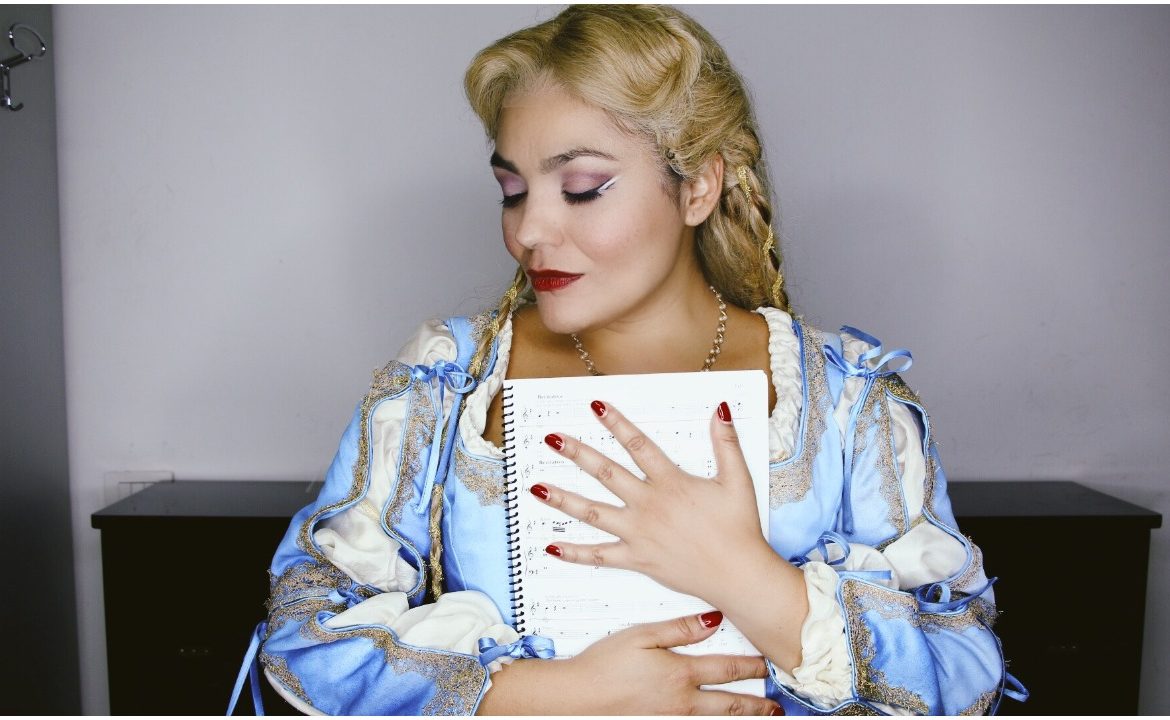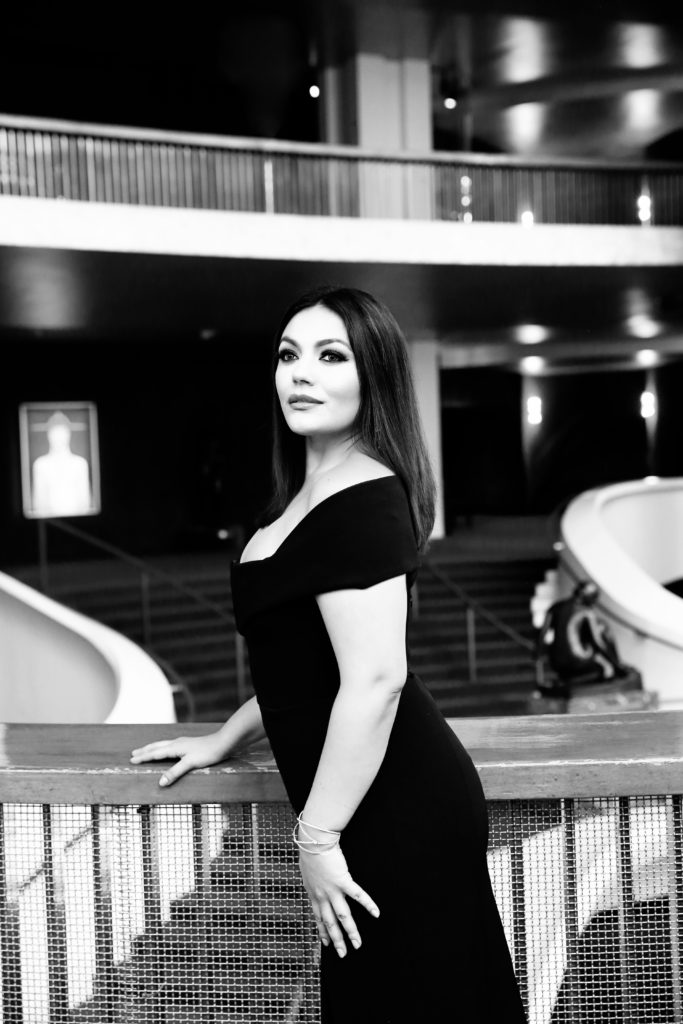Q & A: Soprano Ailyn Perez On Singing Donna Anna & ‘Don Giovanni’

Soprano Ailyn Perez is coming off two successful productions at the Metropolitan Opera in some of her signature roles and winning the prestigious Opera news award. Her star has risen and she has become more and more in demand around the world.
Now the soprano returns to the Houston Grand Opera where she has debuted numerous roles and has had some of her greatest successes to date. This time she will sing Donna Anna in Mozart’s “Don Giovanni” bringing to life a new production by Kasper Holten. The first performance of that run was on Saturday, April 20, 2019.
In anticipation for the big debut, Perez spoke to OperaWire about Mozart, the new production and singing the role of Donna Anna.
OperaWire: Tell me about this new production by Kasper Holten and what it brings to this Mozart masterpiece?
Ailyn Perez: The production is from the Royal Opera House by Kasper Holten and the director here in Houston is Amy Lane, who is just fantastic. Getting this provocative stage to work is incredible because it flips the script.
In this production the women have more choice and agency. For example, Donna Anna chooses to be with Don Giovanni at the beginning, so it’s not a rape. And when she sees her father dead, she lies about Giovanni and assumes he killed her father purposefully. Giovanni here does kills Anna’s father but he is not sorry for it because it was an accident. It’s a wild take. There are also ghosts of the women’s past on the set, which makes it really interesting to play.
OW: Had you seen the production at the Royal Opera House, Covent Garden?
AP: I had seen the production before and I remember thinking how visual it was and what a great cast it was. But I couldn’t read a lot of the subtle things that Holten had added and the way he reinterpreted the text. Those nuances were not as memorable for me because I remember how visually striking the production was. I also remember the ending of the production. Giovanni is left all alone on the stage and that is hell. He doesn’t go down into the ground or burns. He’s just left all by himself in loneliness.
OW: Don Giovanni is one of the most relevant works today. Why do you think it is easily translated to different time periods?
AP: What makes this piece so incredible is that being a masterpiece, it can sustain relevance and you can interpret it in many ways. You can play with the text in so many ways and that is what raises the bar. Here we are 200 or more years later and we are still figuring the work out and if you look at this piece we see that our society is still dealing with class, status, relationships, struggle, love, fear, and death.
OW: How does the role of Donna Anna compare to the other Mozart works you have performed?
AP: I have sung Pamina two times in Berlin and Ravinia Festival and then never again. I loved the role because it was clean for the voice and just so good for me. That role is one of the reasons I love to keep Mozart in the repertoire because of the beauty and balance as well as the tone. While it’s dramatic, it’s good for my voice. And now coming to Anna after singing two Verdi roles, it’s just so perfect for a lyric voice. It gives you the fire but also that breath of air.
OW: Donna Anna has two very contrasting arias. Can you tell me how you see them and what they say about her character?
AP: “Or sai chi l’onore” is like a superhero arriving and I think that at the core of Anna, she is the hero but doesn’t know it. So she becomes the villain in this production because she is lying, she can’t lose Ottavio and lose her place in society, but at the same time she is lying and that makes her seek revenge. The other element is if Ottavio were to confront Giovanni, Ottavio would easily lose to him. She longs to be the hero but she is forcing Ottavio to do it for her. In this production’s case as soon as Ottavio does what she wants in Act one, Anna stops him from killing Giovanni.
I think Anna realizes she can’t take the pureness away from Ottavio especially after “Dalla sua pace.” It’s not what she wants and seeing his innocence gives her more pain. I think because she is fire and very physical, that is why she goes so well with Giovanni. It may not be in the score but we are creating the physical language. Meanwhile, “Non mi dir” is about having Anna start all over and leaving everything behind.
OW: Because Donna Anna is seeking revenge and Donna Elvira is constantly after Don Giovanni, the Women are the most active of characters. What does this say about the character of Don Giovanni?
AP: The ironic thing is Giovanni doesn’t really do anything. The audience sees him kill Commendatore and seduce women but he never completes anything. And Leporello’s book is just stories for all we know. We assume Giovanni is giving us all the information, but we don’t know if any of the stories are true. And it’s more interesting for this piece that no characters play a victim card and it brings more truth and honesty to it.
OW: What has it been to work with this cast?
AP: This cast is amazing and beautiful. Ryan McKinny is singing his first Don Giovanni, which is so exciting, Paolo Bordogna is fabulous, Melody Moore has a powerful voice, and Ben Bliss is Ottavio which is pure honey when he sings. I am so excited about this cast and performing with all these great artists.
